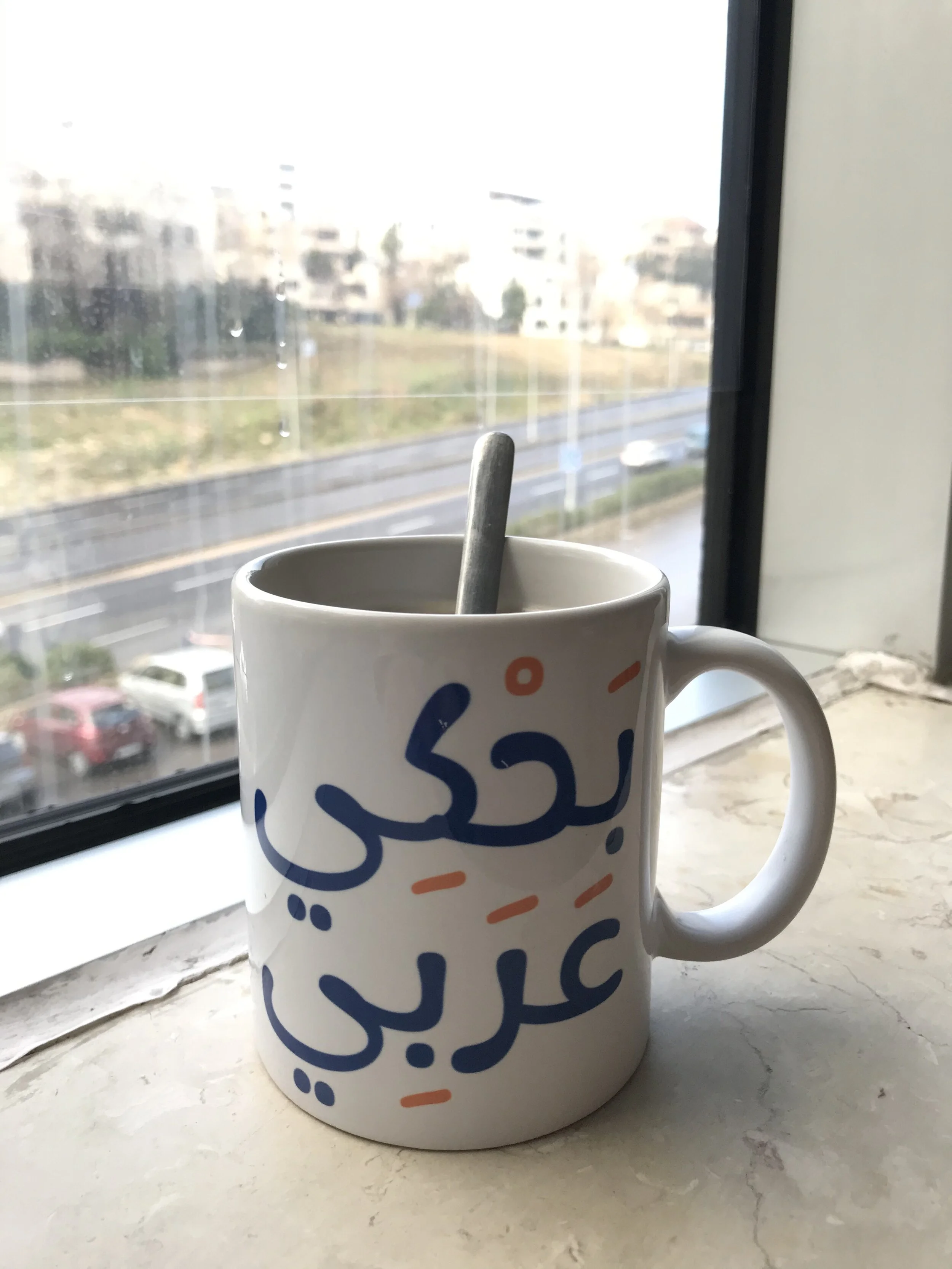"Survival Arabic" by Betül Aydın
When Al-Kitaab introduced الأمم المتحدة (the word for United Nations) in lesson 1, long before they gave us the word هنا (here), I think most students learning Arabic probably realized that the order could feel a bit odd at times and that our dictionary isn’t always practical. Arabic is centuries old and, needless to say, a very rich language — there are 11 words for love, 50 for beautiful and another 100 for camel. During orientation week, we had a few sessions of “Survival Arabic” which I thought was really helpful. Although it was hard to pick, here are some words and phrases I have been using from those sessions and others I have just picked up with time. If you are also planning to study abroad or are in the region for a visit, these words may help you navigate the city upon your initial arrival. While Al-Kitaab exposes us to a great deal of vocabulary, words used in everyday life that are also reflective of culture can’t really be discovered until you experience it yourself, and here are some of my discoveries thus far.
یعطیك العافیة - الله یعافیك
Although the literal translation of this word is “God give you health,” it takes on many more meanings on the streets — it can mean excuse me, could I have a moment of your time, expresses appreciation for someone’s work or effort and is used when you want to start or end a conversation. The response to this expression is “ الله یعافیك ” which means “may God give you health as well.”
الاكل زاكي - صحتین
الاكل زاكي - means“ the food was delicious” and I find myself saying this a lot because my host mom is just too good! She usually responds “ صحتین ” which literally translates to “two healths.” In other words, you are wishing a double-portion of health and prosperity on those dining with you.
كم هذا / قدیش؟
What cues the bargaining :) The second word is more common in Ammiya/the colloquial dialect. I generally ask if adjusting the price to a lower amount is possible in smaller shops (دكاكین) every now and then.
لو سمحت
Although I remember learning “ من فضلك ” with the textbook, this is the much more prevalent way to say please. Our Arabic teacher told us that a student was able to get a free ride just by using this word enough times with a taxi driver!
…لو سمحت بدي اروح على
I memorized this phrase, “I want to go to … please,” to help get around. Uber and taxis are really common, so I used this on a daily basis, and instead of giving the exact name/location of the place I want to go to, I instead describe my destination in reference to more popular landmarks. If you are here in Jordan with AMIDEAST for example, and want to go to class, you can plug in the phrase “ قریب من/تحت جسر عبدون ” (near/under Abdoun bridge). Also, the word “ بدي ” in this expression means “I want” and it is important to note that people usually add ب in front of verbs in Ammiya.
وقف هنا لو سمحت
Also useful when transporting — ”stop here please.”
بحكي
This word, also featured in the picture above, is a word often used in Ammiya and means “I speak/talk/tell.”
یعني/ بس / خلاص / حلو
These words are by far the ones I hear the most often. “ یعني ” means “like, literally, actually, meaning or in other words” and “ بس ” means “but or only” and both can be used as filler words. The third word also has several meanings, including “that's enough, stop, alright and no problem.” Finally, “ حلو ” is a very common word used to say good/sweet/nice. These words are used in a wide range of situations and their meanings change based on the context.
شو في ما في - صافیة وافیة
This is just a fun way to say “what’s up,” and the corresponding response, صافیة وافیة , also rhymes!
بشوفك
“See you!”
Some of these words don’t really exist in English, and that is because they don’t need to be, given the context; when you start using these terms, you are not only speaking Arabic but also embracing the culture.






